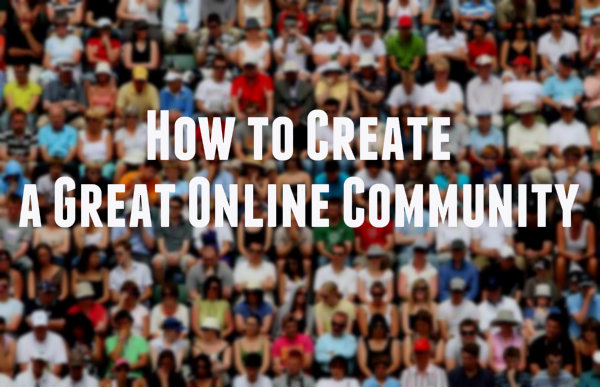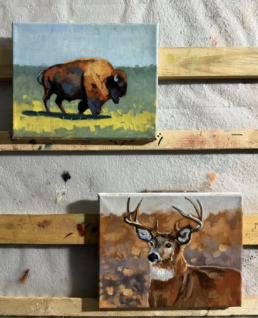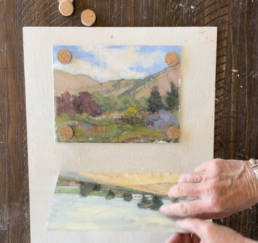Do you know how to be a good person? Bravo! Then you also know how to create a great online community. Just like any familial endeavor or offline community, one must be present and attentive.
But it takes more than that too. Passion.
Passion will set the compass for your community and its focus. It will be the vision for why people happily carve out time in their busy lives to show up and add their own heartbeats to not only keep the community breathing, but vibrant. Whether it is for a business purpose, a personal hobby or interest, or some other focus, the degree of your passion will drive how successful your online community becomes.
To lead a community, you need to be available and committed. Nurture it, feed it, take care of it — just as in so many other things in our lives that we care about.
Just like those who bring home a pet and then realize it’s more than they bargained for, I’ve seen people begin online communities or similar ventures only to give them up soon thereafter. They are all gung-ho at the beginning, but then things are left to wither. And wither they will, for if an online community is left to stagnate, it will die on the vine quicker than a tomato plant in a drought with a broken sprinkler.
So make sure this is something you can tend to day in and day out.
Controversies may develop. Life, you know? But what will YOU do to keep it all going?
- As you take your passion and begin to develop a community around it, make people feel important from the beginning.
- When people join up, show interest in them.
- When people comment and post, be responsive.
- Always be thinking of others — share, encourage and connect. T
- he more you give, the more you will get.
- Your behavior provides the standard for how others are expected to behave — if you give, they will give.
- Whatever you do, lay off the “me, me, me” — nothing turns off people more.
Just as in “good” social media, communities are not about promoting yourself and broadcasting your personal agenda or worse, sales messages. That’s not a community. That’s a self-promotional, self-interested ad to which nobody will pay attention.
And don’t forget to say thank you. A “like,” a retweet, and a +1 go a long way in this regard too.
I think the best communities actually start to run themselves after a while, but that’s only after you’ve put in the time and created something where people care enough to take ownership in its welfare and survival. It takes a lot of work and dedication to build a successful community. Community leaders need to know when to step in and when to hang back and let the engagement unfold organically.
The re:DESIGN Google+ community I started is only a few months old and it inspires me every day. Our community’s focus on design, creativity, and innovation are fascinating topics in themselves, so that is a definite advantage — but it is the lively discussions and sharing in the comments that really makes the community one that people keep returning to. I am proud of what is developing.
A great online community takes some careful orchestration, but good manners and basically everything your mother taught you when you were growing up are precisely the skills you will need to nurture an engaged community. ~Paul Biedermann
Another successful online community I help run is the 12 Most community. There, we rally around the common effort of producing the “best list site on the web,” creating fresh content every day for what is currently a readership of about 200K readers a month. But what our readers aren’t as aware of, is the lively writers community that continues to thrive beyond that public endeavor. Most of our interaction happens in a private Facebook group where we support, share, help and laugh together — about writing and everything else under the sun. We lookout for each other and let people know when someone has unscrupulously reposted our content where it shouldn’t be, and talk about other “12 Mosters” we may have met in person that week (yes, we even have a name for ourselves!). We work together and we play together — fun!
I have also seen miraculous things happen with another online community called #UsGuys which began on Twitter by virtue of a hashtag. People who never would have known each other have become dear friends, business partners, champions of good causes and even spouses. Now how awesome is that?
Be generous and selfless. That is today’s currency in this new era of social engagement and social business.
Creating a viable online community around your business focus is a great way to build professional credibility and your personal “brand.” Not only do you get to meet lots of great people with similar interests, but it is also a living, breathing entity that offers oodles of social proof about who you are, how you operate and if you are someone whom people want to work with. That is one of the tangible rewards from creating a strong, thriving online community. Trust is so important in business, and especially hard to determine online unless people know you through through the online social channels — either by participating or leading.
I think you’ll agree that a lot of the steps here are quite simple, really — but isn’t it funny how those are precisely the things that always seem to be the hardest to follow? If you pay attention to the little things and do them right, however, you will find that your community has a lively, spirited vibrancy where people learn together, help each other and even advocate for one another. In fact, you might just find one day that what you created is really no longer a community at all — it is a tribe.
Guest author: Paul Biedermann is an award-winning Creative Director, creating brands of distinction by intersecting smart design with business strategies that reach, engage, and inspire people to action. Named one of the Top 100 Influencers in Social Media,









I seldom leave remarks, but i did some searching and wound up here
How to Create a Great Online Community. And I actually do have a couple of questions for you if you
don’t mind. Could it be just me or does it look like a few of
these responses appear like left by brain dead visitors?
😛 And, if you are posting on other places, I’d like to follow anything fresh you have to post.
Would you list of every one of all your social sites like your linkedin profile, Facebook page or
twitter feed?
Well, I don’t normally respond to ‘lottery news’ comments…but, yours seem legit! 😉 I would be mindful of not spamming when leaving comments with too many social site links. I would suggest leaving your top social site. I hope this helps.